|
😀
|
| |
 |
|
|
|
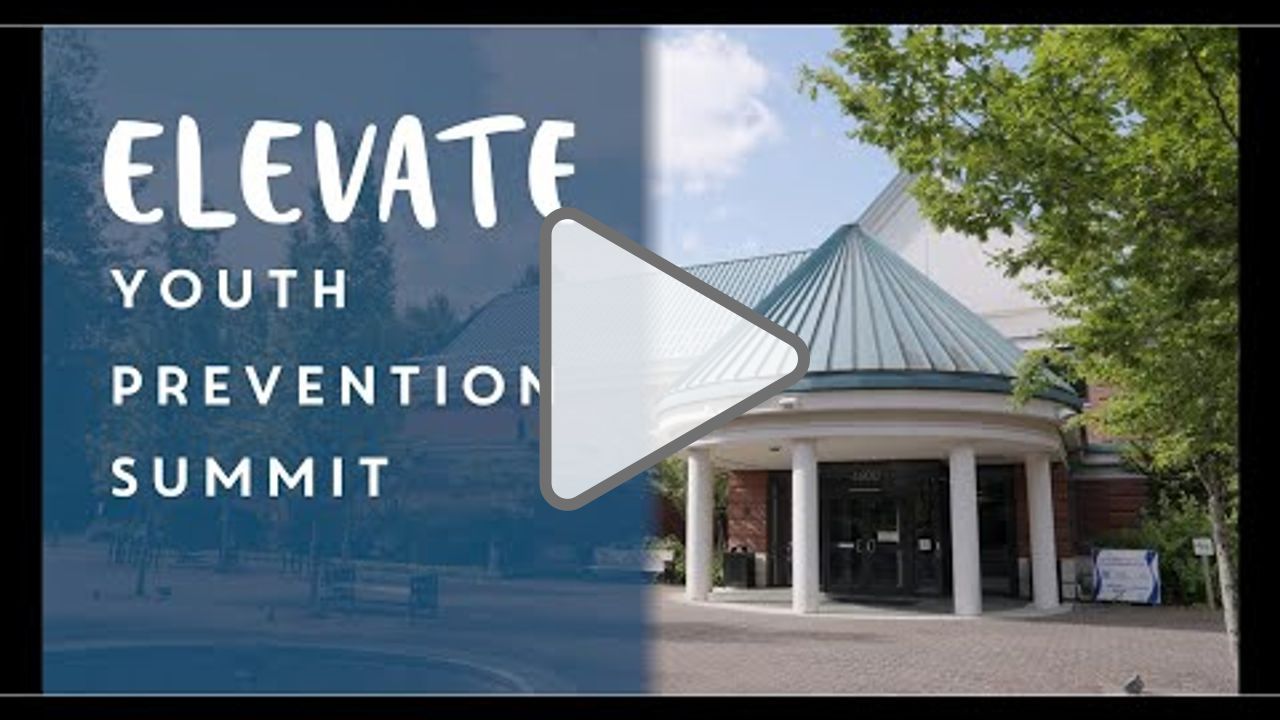 |
 |
Prevent Coalition and its partners are thrilled to announce their annual Elevate Youth Summit will be held on Friday, April 25, 2025, from 9:30 a.m. to 2:30 p.m. This dynamic event will be held at the Water Resource Center in Vancouver, WA. Lunch will be provided!
The Elevate Youth Prevention Summit welcomes youth from Clark, Skamania, or Klickitat Counties to participate in a day focused on youth leadership, empowerment, resilience, and substance use prevention, among other vital topics. The summit aims to equip young participants with tools to create meaningful connections with peers and their school community.
Attendees will participate in a variety of interactive and engaging sessions, combining large group work with breakout activities facilitated by Xander Cook, Youth Engagement Coordinator with Unite! Washougal Coalition. While the event is designed for middle school-aged youth, high school students are encouraged to attend and can support younger participants through mentorship.
Registration is open through Friday, April 18, 2025.
Don't miss this opportunity for youth to learn, connect, and develop essential skills for personal growth and community impact. To register and learn more, visit the event website: preventcoalition.org/elevateyouthsummit2025
|
|
Prevent Coalition received an Opioid Prevention Grant to help fight opioid misuse among youth in Clark County. The grant, funded by the Clark County Opioid Abatement Council, will help Prevent expand its work in education, awareness, and prevention strategies to address the growing dangers of fentanyl and other opioids.
The funding comes at a critical time as the opioid crisis in Washington State has reached alarming levels, with fentanyl being a significant concern. More than 70% of opioid overdose deaths in the state involve fentanyl, a powerful synthetic opioid that’s often disguised as regular prescription pills and sold online.
Click here to read the full story on esd112.org/news.
|
|
Prevent released their latest podcast, Season 3, Episode 1 - Youth Mental Health Wellness. Prevent Coalition staff members Matthew Cox and Abigail Wells discuss Washington State youth mental health data and provide some tips and resources for mental health wellness. In the second half of the podcast, Matthew and Abigail talk to Alaina Green from the City of Vancouver's Department of Community Services about her work with Teens for Tomorrow and the origins of the Find Your Good Campaign.
Season 3 Episodes:
Season 2 Episodes:
Season 1 Episodes:
All Prevent Coalition podcasts can be found at preventcoalition.podbean.com or on Google Podcasts, the Apple Podcast app and other familiar streaming services. Episodes are also archived at preventcoalition.org/events/news/.
|
|
|
|
Southwest Washington students recently participated in the annual Use Your Voice student-led advocacy training, an event designed to empower youth to make a difference in their communities and prepare them to advocate for policy change.
Held on December 13, 2024, at Washougal High School, Use Your Voice brought together students ages 12-18 from around the region to shine a light on youth advocacy. Participants engaged in discussions on addressing issues affecting youth and explored ways to use their voices to influence lawmakers, even before they are eligible to vote. Washougal Mayor David Stuebe and Washington State Rep. Kevin Waters were in attendance to answer questions.
Click here to read the full story on esd112.org/news.
|
|
Educators, community leaders, and public health advocates recently convened at the Vancouver Water Resource Education Center for the Data Walk & Youth Leadership Panel, an event presented by Prevent Coalition and Clark County Public Health. This gathering focused on addressing youth mental health and substance misuse in Clark County through data-driven insights and youth perspectives.
Click here to read the full story on esd112.org/news.
|
|
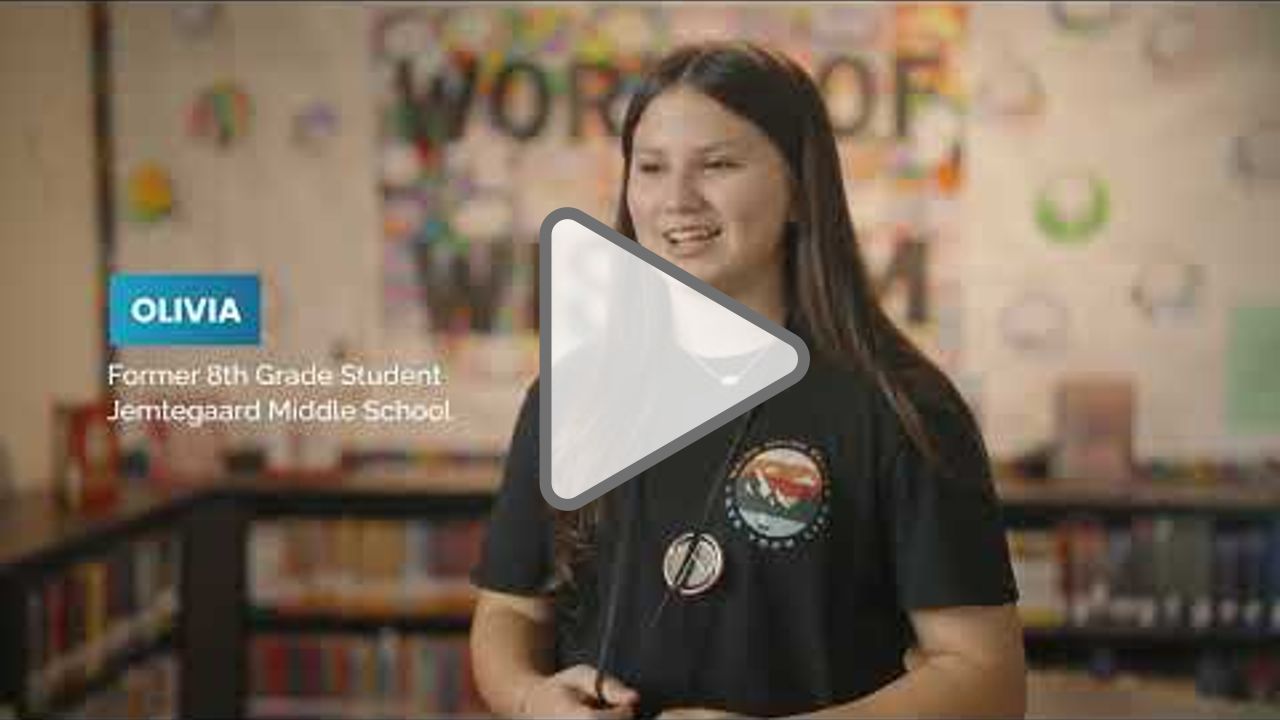 |
Two southwest Washington schools, Jemtegaard Middle School (JMS) and Canyon Creek Middle School (CCMS), both in Washougal, are leading the charge in reshaping perceptions about substance misuse. Led by Unite! Washougal Community Coalition, their innovative Positive Community Norms Campaign sheds light on a surprising reality: substance misuse in schools is far less common than most students, families, and teachers believe.
Click here to view the full story on www.esd112.org/news.
|
 |
|
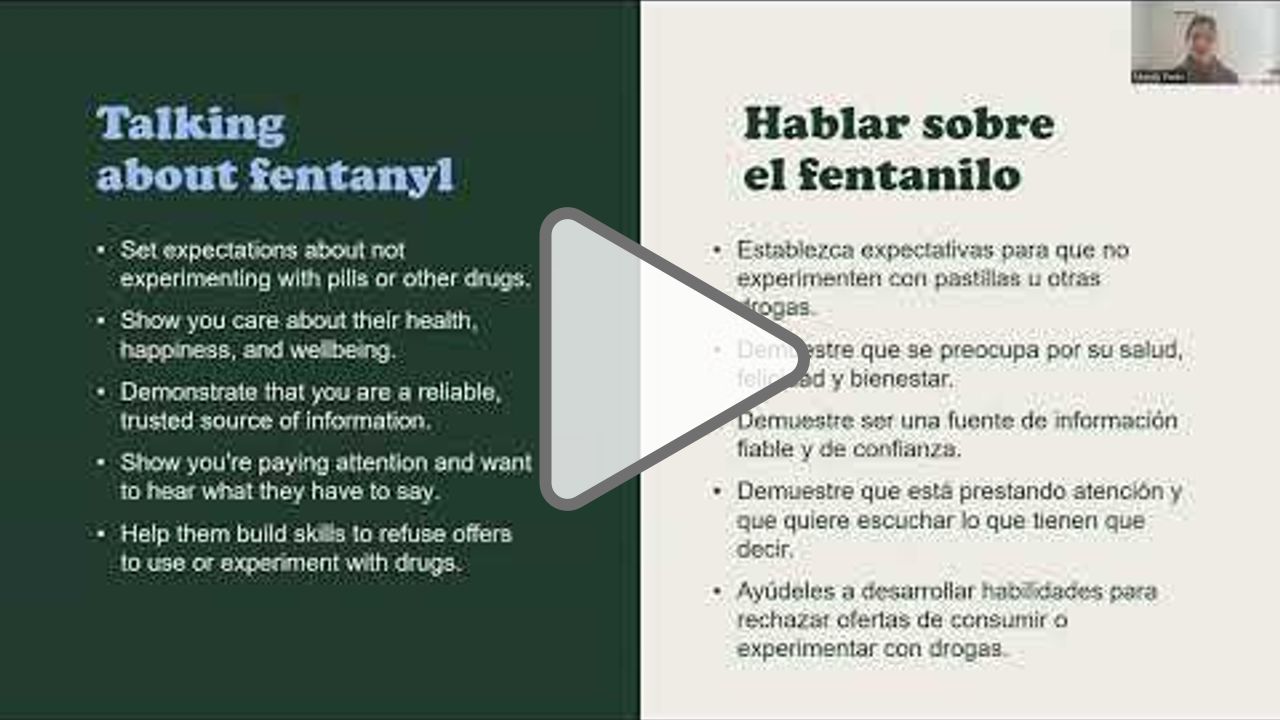 |
Most teens say they trust their parents or caregivers more than anyone when it comes to information and advice about drugs. The Friends for Life campaign can help parents start a conversation with their teens about illicit fentanyl and help to prepare them to avoid any pressure that they may face to experiment with pills.
Prevent created a training video for parents, presented by Mandy Feeks, Prevention Coordinator with Prevent. The video is a 25-minute training about the Friends for Life campaign and how to use it to start the conversation today.
Access campaign resources and learn more about Friends for Life by visiting the campaign website: https://wafriendsforlife.com
|
|
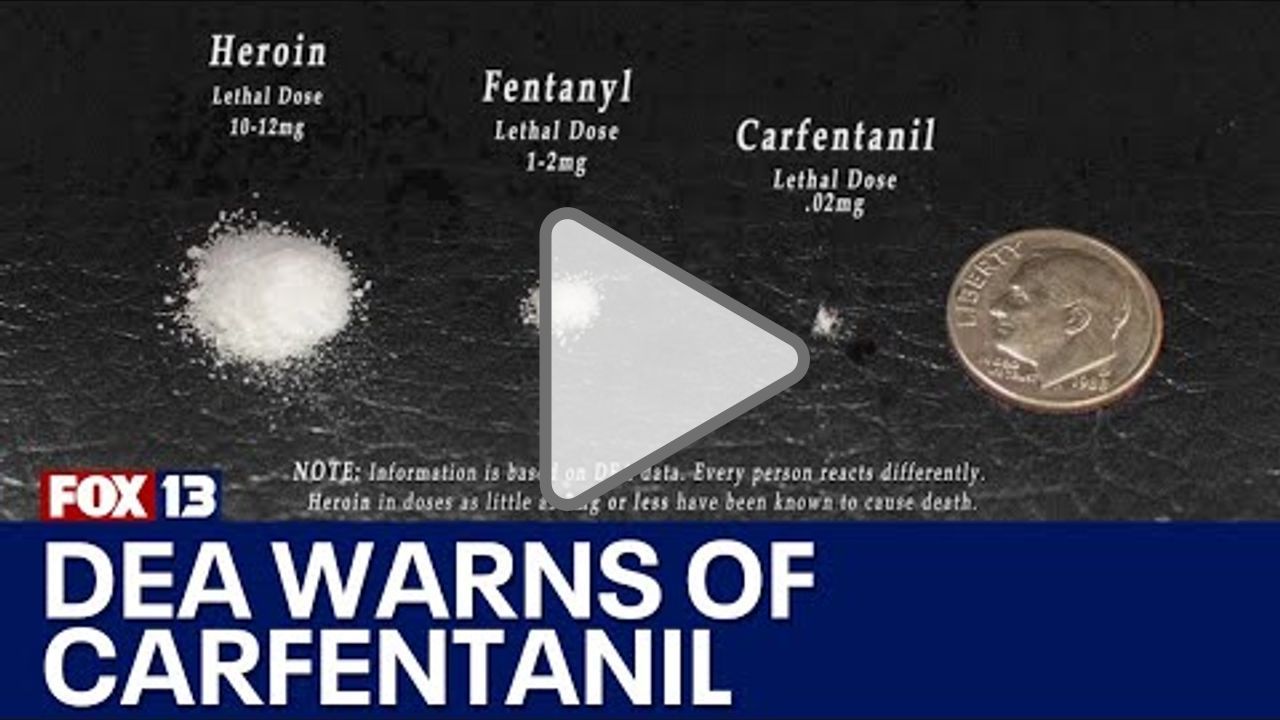 |
|
|
|
|
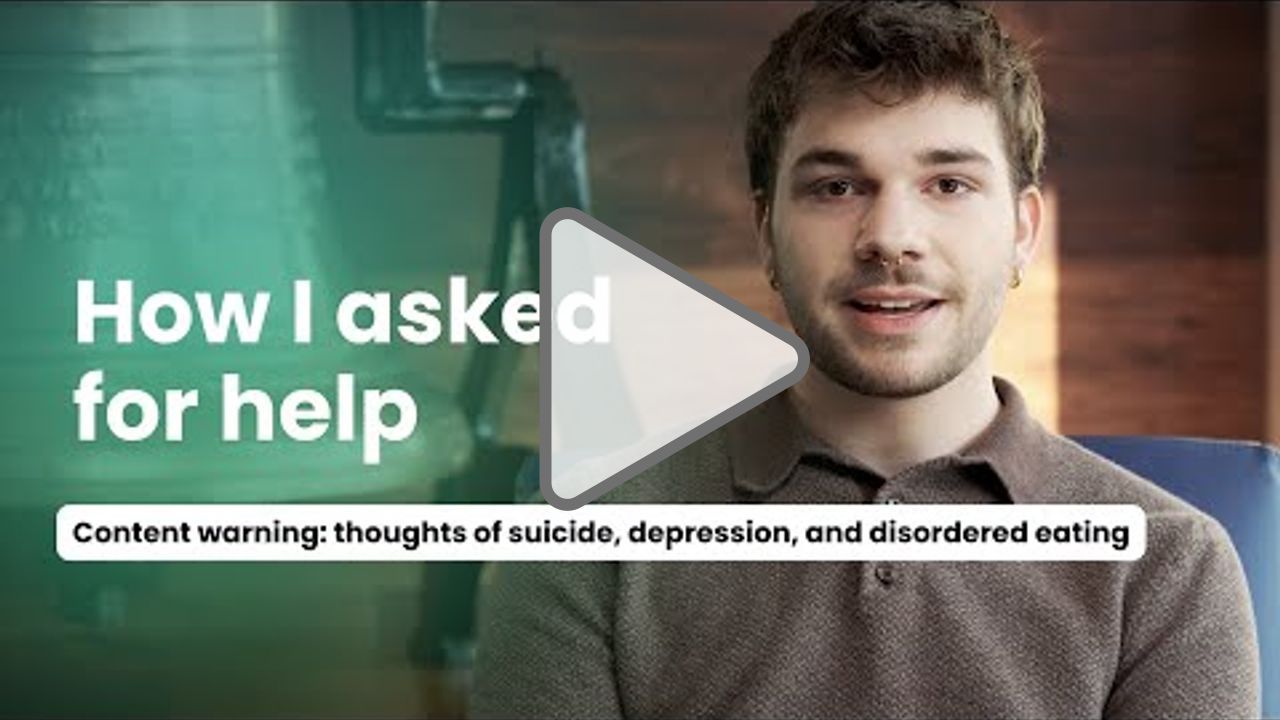 |
Today's youth are facing unprecedented challenges to their mental well-being, and supportive adults can make a significant difference in a young person’s mental health journey.
Mental Health America created resource webpages, "Supporting Young Minds" to empower parents, caregivers, teachers, and others with fostering nonjudgmental environments where young people feel safe expressing themselves. Their guides and other resources provide information about facilitating conversations and validating feelings, creating safe spaces and supportive culture in the classroom, and ways to promote peer support.
Resources include links to mental health crisis lines, an online mental health test that can help with screening, shareable social media graphics with sample text, curriculum content and back-to-school toolkits, links to books and guides, resources specifically for youth, parents and adults, and material in Spanish language.
The Mental Health America website contains a vast collection of resources and content for all age groups. Visit mhanational.org.
|
|
Kids’ Mental Health Southwest Washington is a group of agencies and professionals dedicated to improving child and adolescent mental health treatment and prevention in Clark, Skamania, and Klickitat Counties. Their Behavioral Health Navigator team is a growing program funded through the Washington State Health Care Authority (HCA) in partnership with Carelon Behavioral Health with a goal to bring children, youth and families together to address the behavioral health crisis in children and youth.
|
They use MDT’s (multidisciplinary team meetings) to connect youth and families to the care and resources they need. The MDT's form a single point of contact for individuals concerned about a school aged youth experiencing emotional/behavioral health challenges or in emergency department setting due to behavioral health needs. A community collaborative in Clark, Skamania and Klickitat counties work together to create a stronger safety net for youth experiencing behavioral health challenges.
To refer a child to the program visit: kidsmentalhealthsw.org/mdt. Inquiries can be emailed to [email protected].
Their website contains a vast list of behavioral health contacts and resources for southwest Washington counties. Visit kidsmentalhealthsw.org to learn more!
|
|
|
|
|
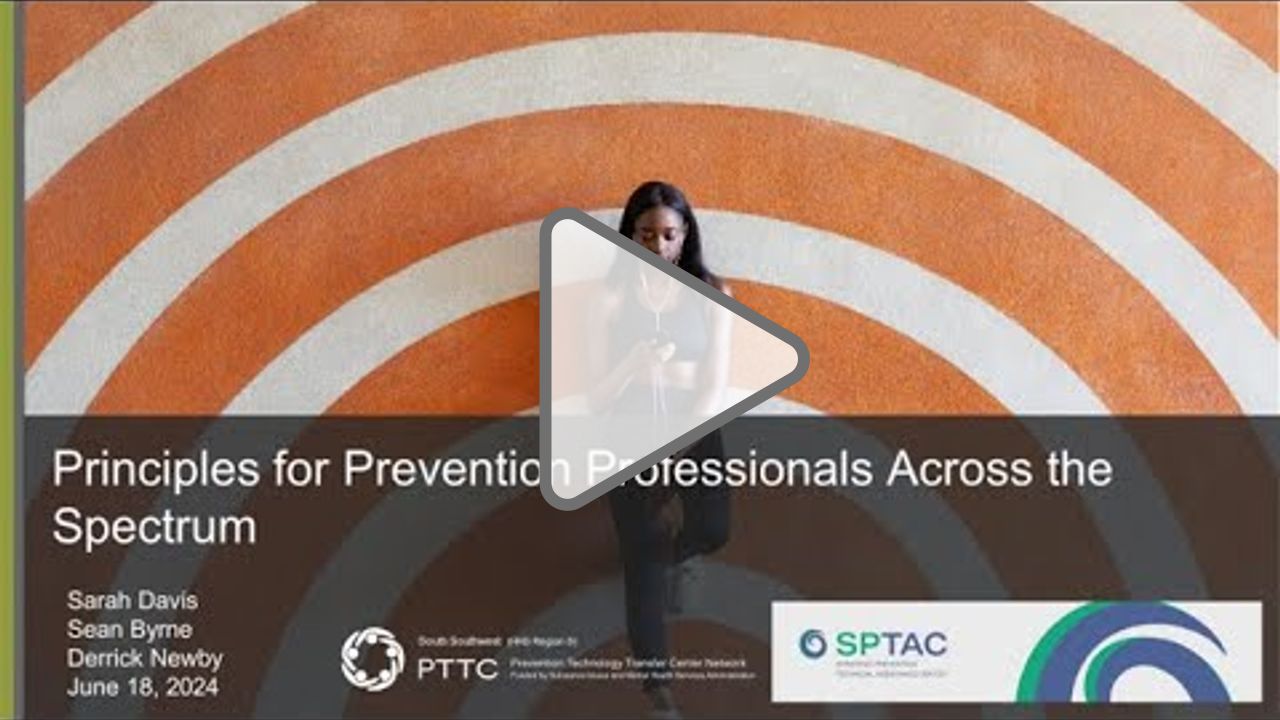 |
This recorded webinar takes a journey through the "Principles for Prevention Professionals Across the Spectrum," also known as the continuum of care. Participants will explore the fundamental principles that guide effective prevention practices across the entire Spectrum of Mental, Emotional, and Behavioral Interventions, and gain a deeper understanding of the core principles that underpin successful prevention strategies. Presenters Sarah Davis and Sean Byrne guide you through these principles in diverse settings and populations, including schools, communities, healthcare settings, and beyond.
Click here to visit the event website for more information and a link to download the slide deck.
|
|
The Washington State Liquor and Cannabis Board (LCB) refreshed their website recently with a modern look and feel. Many of their most used web pages are now accessible from the home page. This includes the "Report a Violation" link.
This is a statewide tool for both prevention professionals and community members. Anyone may report an alcohol, tobacco or cannabis law/regulation violation using an online form (or by contacting a regional enforcement office). The online form can be accessed at lcb.wa.gov/enforcement/report-violation
|
|
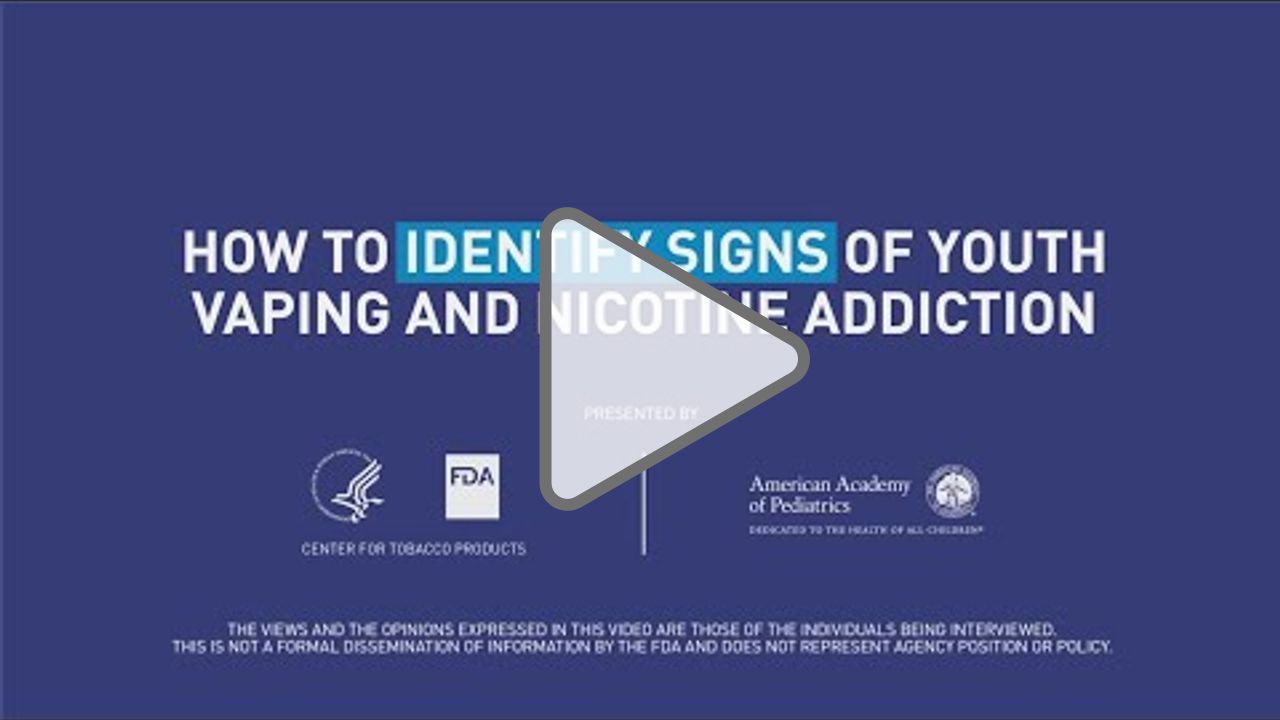 |
The American Academy of Pediatrics (AAP) partnered with the FDA to provide a collection of educational videos about vaping prevention. The short videos include clinical trainings for health professionals who want to learn how to counsel young patients about tobacco product use, and informational videos for adults and parents with advice from pediatricians.
Click here to visit the aap.org website.
|
|
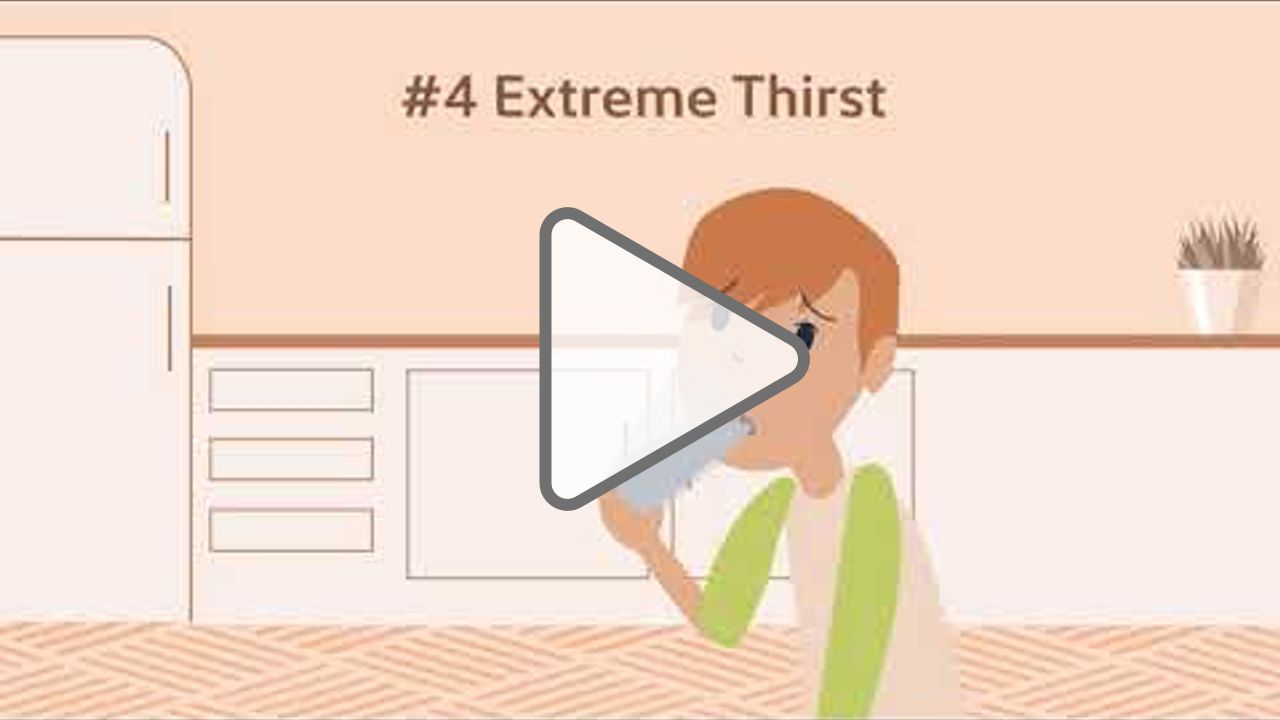 |
Do you know any parents who are worried their teen might be vaping? There are a number of signs that you should look out for, like unexplained sweet scents. Watch this video to learn what else to watch out for, and make sure to talk to teens about the dangers of vaping. This video was created and distributed by Banner Health.
|
|
"Take Down Tobacco" is Campaign for Tobacco-Free Kids signature platform for empowering young people to fight big tobacco. Youth can work alongside elected leaders, parents, teachers, healthcare providers and advocates toward a tobacco-free generation. Whether hanging posters around school or holding a rally at the capitol, youth unite on April 1st each year to expose big tobacco.
The campaign promotes three ways to get involved: - Host an event to educate and raise awareness in your school or community.
- Share facts with paper-based media, on social media, or using other platforms.
- Contact elected representatives and advocate for commercial tobacco prevention.
Learn more about the campaign and find resources to assist with participation on the National Day of Action website.
|
|
|
|
|
Below are links to resources to assist with your legislative engagement.
Washington State Legislature Home Page
2025 Session Cutoff Calendar
Watch Live Coverage - TVW See unedited coverage of committee hearings, testimony, floor debate, press conferences, and much more. Search the archive for recorded events or tune in live!
Training resources Learn about the legislative process from Prevention Voices WA and Foundation for Healthy Generations
Bill Information Search by bill number, or list bills by many other methods from links. The bottom of each bill page has links to TVW video of hearings and floor action. See the Bill Report for a useful high-level summary of the bill policy, background, and hearing testimony.
Budget Information Public access to state fiscal data, reports, chards, and maps to promote government transparency. You can view Governor elect Bob Ferguson budget priorities for 2025-2027 by clicking here.
Current Laws (RCWs) and Rules (WACs) Find RCWs or WAC by number or by title.
Learn and Participate
Information about how a bill becomes a law, how to participate in the lawmaking process, civic education programs, educational resources, and more.
Skills and Tips for Understanding the WA Legislative Session (Washington Breathes - 1 hour recorded webinar)
Find your District & Legislators
Legislative Committee Information
Past Election Results
Washington Lobbying Rules
Sign Up for Email Updates on Committee Hearing Schedules
How to Read a Bill (Video)
|
|
This resource from Washington Breathes, the statewide coalition for commercial tobacco prevention, explains policy solutions to prevent youth vaping and help young people quit nicotine use. This handout focuses on two critical strategies:
- Ending the sale of flavored tobacco products, and
- Funding youth prevention and cessation programs provided by Tribes, community organizations, and for schools.
Data from the Healthy Youth Survey is also shared to show disparities in youth commercial tobacco use and historical trends as e-cigarette use increased.
Click here or on the image to view the infographic.
|
|
This infographic from the American Heart Association provides data to highlight the need to eliminate flavored products from the marketplace in order to protect a generation of youth from nicotine addiction and health harm from nicotine products.
The resource provides policy recommendations from the American Lung Association that are similar to those passed by cities, counties, and states across the United States that have eliminated the sale of ALL flavored tobacco products.
Click here or on the image to view the infographic.
|
|
If you are new to the legislative process, or just looking for a refresher, this fact sheet is designed to help you better understand how legislatures typically operate, what to look for in bills, and the most effective ways to publicly engage with the legislature. Its purpose is to provide the public health community with the tools needed to effectively track and shape commercial tobacco control policy.
Click here or on the image with this story to view the guide.
|
|
Grant County Health District developed a toolkit to help everyone better understand the legislative process. Support and endorsement for the guide was provided by the Youth Cannabis and Commercial Tobacco Prevention Program (YCCTPP).
This toolkit is meant to serve as an educational resource and includes a compilation of knowledge, definitions, experiences, and guidance from several well-known professionals doing prevention in Washington state.
Click here (or the image) to view the toolkit.
|
 |
*It starts with one honest conversation. Talking to your loved ones about drugs can be tough, but it may be the most important thing you do. Be the one to help keep your friends and family safe. Have a conversation about the risks of opioid use and share the facts with others. Access resources at www.getthefactsrx.com.
|
 |
|
In the digital age, internet safety is a critical concern for families, especially in rural communities where resources may be limited. The Center for Online Safety explores practical strategies for promoting online safety and building resilience among youth and families in rural areas.
Their website organizes key areas of focus, discussion points, and resource links for rural communities, coalitions, and parents. They also have podcast recordings! If you are looking for resources for youth digital safety visit centerforonlinesafety.com/prevention.
|
|
Whether you have recently joined the Rural Network or are still thinking about it there is a resource available that will answer your commonly asked questions - our New Member Orientation Guide!
This guide describes our mission, vision, funding, 7 core principles, who we serve, and how to get involved. It also describes what our meetings are like and why you should join!
Learn all the details at smore.com/8eqhp
|
|
|
|
|
|
Monthly “Rural Network Meetings”
The full membership meets monthly on the last Tuesday from 2-3:30pm. This meeting is meant to engage network members, build connections across isolated communities, provide training to members and bring in guest speakers, we do policy work and have guest legislators come to meet rural volunteers, and we also do community-of-practice style activities where members share their experiences with one another or tackle tough issues collaboratively. These meetings are usually held virtually and open to the public, anyone is welcome to join.
|
Conference Workgroup
This group meets monthly to prepare, design and plan for a statewide gathering of rural prevention professionals which happens every 2 years in Yakima, called the Rural Conference. The 2024 Rural Conference was huge success! It's not too early to use what we learned to start planning for the next one. This committee gets to design theme, branding elements, activities that happen at the conference, agenda, speakers and more. This workgroup is hosted by the Rede Group, an event-planning subcontractor of Rural Network. The committee meets on a rotating schedule based on volunteer availability each month.
|
Book Club
Beginning in November our book club will feature a book focused on equity. The Rural Network members have chosen the book “Dividing Paradise: Rural Inequality and the Diminishing American Dream” by Jennifer Sherman. Jennifer was a keynote speaker for the Rural Conference held during September 2024. Interested in participating? Have a good author to suggest for our next book? If you are interested, please reach out to Abigail Wells at [email protected].
|
Engagement Committee
This is our newest Committee. It is tasked with reflecting and brainstorming about member engagement. The committee will discuss recruiting for opportunities, barriers to Rural Network participation, strategies and activities to build capacity and membership across rural communities, as well as feedback received about participation. The Engagement Committee meets the second Wednesday of each month from 10am-11am.
We are looking for more members! If you are interested in participating, please reach out to Abigail Wells at [email protected].
|
Steering Committee
Our leadership team guides the work of the Rural Network, reflects on action plan progress, plans monthly meeting agenda, and evaluates the progress and outcomes of the program. We’re looking for more members to guide the work and get involved to increase our Steering capacity and keep the work sustained/strong. We meet monthly on the 1st Thursday from 10am-11:30am (PT) and are hoping to add 3-4 more members.
|
Toolkit Workgroup
We have a Toolkit Workgroup meeting that is currently on pause. This committee will eventually be run by the Montana Institute and is in charge of creating a Positive Community Norms (PCN) Campaign for rural communities statewide. Last year, this committee updated the Find Your Good campaign and created new messaging/media based on a rural youth survey they created and promoted.
|
Office Hours
Our staff holds a placeholder for an hour every month for people to come and brainstorm, bounce ideas off one another, or otherwise receive support or Technical Assistance from any/all our staff team. Sometimes you need a like-minded Coordinator to generate ideas, double check their action plan, troubleshoot a difficult sector representative, etc. We’re here to support you at these monthly time slots. Email Abigail Wells ([email protected]) or [email protected] to reserve this time with us.
|
 |
 |
7 Core Principles Rural Network.pdf
|
|
Download
1.1 MB
|
|
 |
|
Rural Network Meeting Tuesday, March 25, 2025 2-3:30 p.m. Online conference call Regular monthly meeting for Rural Network Members.
Rural Network Office Hours
Wednesday, April 2, 2025 1-2 p.m. Virtual Meeting
For Rural Network members to receive technical assistance
Rural Network Steering Committee Thursday, April 3, 2025 10:00-11:30 a.m. Virtual Meeting Develop the plan, guide the implementation, evaluate the results.
Rural Network Meeting Tuesday, April 22, 2025 2-3:30 p.m. Online conference call
Rural Network Office Hours
Wednesday, May 7, 2025 1-2 p.m. Virtual Meeting
For Rural Network members to receive technical assistance
Rural Network Steering Committee Thursday, May 8, 2025 10:00-11:30 a.m. Virtual Meeting Develop the plan, guide the implementation, evaluate the results.
Regular monthly meeting for Rural Network Members.
All times are Pacific Standard Time (PST)
|
|
Relevant events and training not sponsored by Prevent Coalition:
PAVe Dangers of Vaping: What Parents Need to Know Webinar March 25, 2025, 3pm PT Cost: Free
Event website: Click here to register and learn more. This presentation will help participants understand and recognize tobacco industry tactics targeting youth, explain the dangers of nicotine e-cigarettes/vapes, non-nicotine vapes, and other new tobacco products, know the steps to protect youth and how to advise others to get involved, and know how to take action in your own communities. The event will be recorded and made available to everyone who registers.
Stanford Medicine 6th Annual Teaching Cannabis (& Other Drugs) Awareness & Prevention Virtual Conference Virtual/Online April 9-10, 2025, 8am-2:30pm (PST) Cost: $150 More Information: Visit the conference webpage. The conference will focus on the intersection of cannabis, tobacco/nicotine, and vaping, both singular and co-use of these products by youth. The Stanford team also hopes to expand the conference to include information about fentanyl/opioids, alcohol, hallucinogens, and other substances. Learn the latest research, reasons for use, health effects, and the latest available lessons available for teaching to elementary, middle- and high school-aged youth.
Rede Group CannAct - Cannabis Action Conference
Virtual/Online June 3-5, 2025 Cost: adults $195 ($245 after May 15th), students $100 Visit www.ph-mjsummit.com for more information. The annual CannAct Conference (formerly Public Health-Marijuana Summit) brings public health professionals, prevention specialists, equity advocates, public safety professionals, tobacco prevention professionals, partners, and other advocates together virtually to discuss the new and changing legalized cannabis landscape in our communities. The conference focus is policy, system and environmental change, youth prevention, and equity.
Montana Institute 2025 Montana Winter Institute: "Reimagining Community Health: Uncovering positive norms & activating hidden protective factors." In-Person & Virtual June 17-20, 2025 Cost: $1195 (in-person), $495 (virtual only) Event website: Click here for event information. If you are engaged in the work of transforming community or workplace health, the Montana Summer Institute is for you. Come to the Summer Institute and join a passionate community of leaders who are working to promote health and improve norms around issues including substance use, social justice, environmental health, traffic safety, suicide prevention, domestic violence, mental health, and more using the Science of the Positive and Positive Community Norms.
CADCA 2025 Mid-Year Training Institute In-person, Nashville, TN July 20-24, 2025 Cost: TBA Registration and information: TBA Visit 2024 event website CADCA brings together industry leaders, federal partners, CADCA staff, master trainers, and coalition leaders to share cutting-edge strategies, best practices, and innovative solutions. Whether you're a seasoned professional or a passionate advocate, this event offers a unique opportunity to expand your knowledge, sharpen your skills, and network with like-minded peers.
National Conference on Tobacco or Health 2025 In-person, Sheraton Grand, Chicago, IL
August 26-29, 2025 Cost: $995 Event Website: Click here to learn more and register.
The National Conference on Tobacco or Health (NCTOH) is one of the largest, long-standing gatherings for top United States tobacco control professionals. The convening attracts a diversity of public health professionals committed to best practices and policies to reduce tobacco use—the leading preventable cause of disease and death in the United States.
NW PTTC
Prevention Ethics Self-paced and moderated Information: click here to visit prevention ethics website! Cost: Free! (some offerings have limited space) The Prevention Technology Transfer Center Network offers a variety of Prevention Ethics courses, both self-paced and moderated, and all of our courses are free! Visit their prevention ethics webpage to learn more about the course offerings and how to sign up.
NW PTTC Special Topics in Prevention of Substance Misuse (Self-paced courses) A large selection of online, on-demand courses that explore special topics in prevention of substance misuse that will better-equip prevention professionals & coalitions to serve their communities. Access the courses via the HealtheKnowledge.org website.
NW PTTC Pharmacology for Prevention Professionals (Self-paced course) Explore the basics of how substances impact major brain regions and the acute and chronic symptoms associated with different substances. Certificates of 1.5 hours for each of the following four courses: Basics of Pharmacology and Alcohol, Basics of Pharmacology and Opioids, Basics of Pharmacology and Psychostimulants (Cocaine & Methamphetamine), and Basics of Pharmacology and Cannabis. Learn more and enroll via the HealtheKnowledge.org website.
CADCA Training and Events Website Free! Explore the library of webinars available, both archived and coming soon. Hosted by CADCA trainers covering topics related to starting and operating a community coalition, prevention, and more. Visit the CADCA TRAINING & EVENTS website.
CADCA Webinar Wednesday Series Free! Register for an upcoming Wednesday webinar or view archived recordings on your own schedule. Visit the CADCA WEBINAR WEDNESDAY SERIES website.
|
 |
Connection is the Best Prevention
Supported by fiscal agent ESD 112, Prevent Coalition is a regional coalition formed in 2003 to increase collaboration, awareness, and reduce youth substance use in Southwest Washington. Prevent Coalition also implements initiatives for rural communities across Washington state. As a community mobilizer, our coalition creates a culture promoting healthy choices; advocates for policies and regulations that protect, empower and nurture youth; and facilitates positive opportunities for youth to be involved and thrive.
Email: [email protected]
Website: www.PreventCoalition.org
Location: 2500 NE 65th Ave., Vancouver, WA, USA
Phone: 360-952-3457
Facebook: Facebook.com/PreventCoalition
Twitter: @supportyouthnow
|
 |
Prevent Coalition
Prevent is using Smore to create beautiful newsletters |
|
|
|
|
|
| |

|
Unsubscribe from emails by Prevent Coalition.
|
|
|












































































































































































